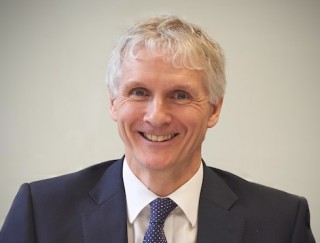The challenge has changed and so must we
 As the recruitment campaign for more senior staff gets underway, Chief Executive Mark Rogers, looks at the challenges facing new and existing Birmingham City Council staff.
As the recruitment campaign for more senior staff gets underway, Chief Executive Mark Rogers, looks at the challenges facing new and existing Birmingham City Council staff.
I won’t win any prizes for insight when I say that the local government landscape has changed dramatically over the last five years. It’s also an understatement to say that this has been a time of unprecedented change.
But, while it’s true that there’s less money and that demand and expectations are increasing, the conversations in 2015 need to be very different to the ones we had last year, let alone five years ago.
This is because the challenge is no longer about simply shrinking the council; our role as councils has dramatically changed over the last five years and the crunch is now coming in which doing everything but on a smaller scale will need to be replaced by doing things completely differently and, in a number of instances, not doing them at all.
This is a tough message, but the sooner we all understand it, the better. Irrevocable and seismic change is imminent.
In some cases this new thinking and new approach will mean new people and, that’s why as part of Birmingham’s Future Council programme, we’re recruiting to a number of senior roles.
We recently announced the appointment of Angela Probert as Strategic Director for Change and Corporate Services and Piali DasGupta as the new Assistant Chief Executive.
Now two roles, Director of HR and Assistant Director – Organisation Development, are being filled as part of the ongoing response to last year’s Kerslake report, which highlighted a number of areas of workforce improvement for the council to make.
These new people join us at a crucial period in the ongoing evolution of local government.
Collectively our capacity has dramatically shrunk, but the demand has not. Indeed in many ways the demands are growing year on year thanks to welfare reforms and an ever-ageing population.
So our challenge now is to work more closely with partners, community groups and residents. We’re going to have to find together new ways of delivering services, developing new relationships and overcoming whatever barriers may have existed in the past.
In Birmingham the approach we’re taking is badged-up as the Future Council programme Elsewhere the title will be different but the challenge remains the same.
- Councils have less money to spend, meaning it is now impossible to do everything we did in the past.
- But demand has not gone away.
- So we have to do things differently and that means working much more closely with partners, our communities and individuals to manage demand and redesign services.
It’s very easy to talk about these things with buzz words and slogans but the three points above give a decent summary of the position and the task that faces colleagues, existing and new.
As a council, our workforce is our strongest asset – so it is vital we ensure the expertise and leadership is in place to develop employees and the way in which we operate as an organisation.
By filling these posts we will ensure this is the case. The challenge to shape the Future Council in the coming years is huge, and the successful recruits will play key roles in modernising how we do business.
This blog first appeared in the Municipal Journal on 5 November 2015.




